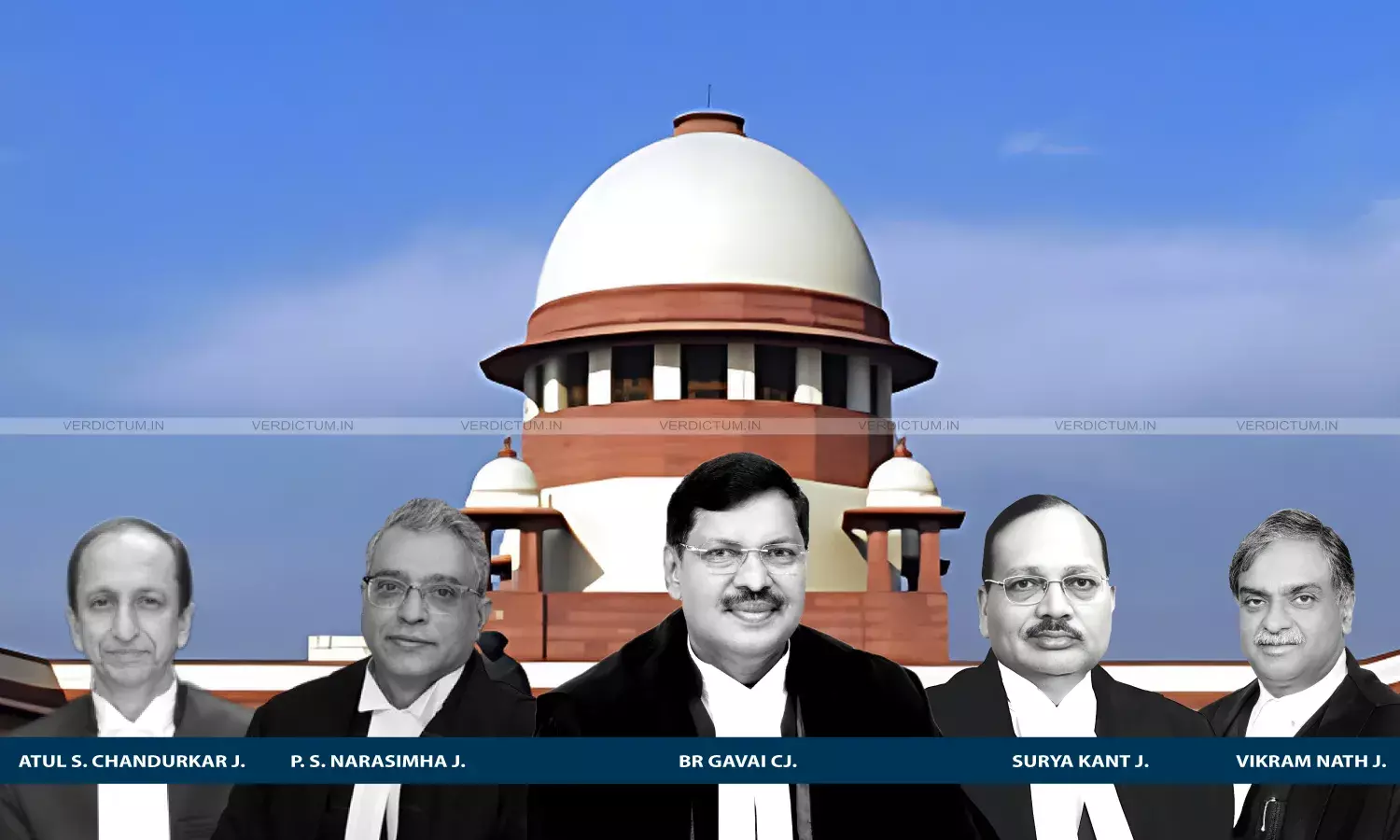Supreme Court Issues Notice To Union & All States On President's Reference On Timelines For Bills' Assent
The Court will examine whether the exercise of discretion by Governors and the President on Bills can be subjected to judicially enforceable timelines.

The Supreme Court today issued notice to the Union of India and all States on a Presidential reference seeking its opinion on whether timelines can be imposed for the Governor and the President to act on Bills passed by State Legislatures under Articles 200 and 201 of the Constitution.
A Constitution Bench comprising Chief Justice of India BR Gavai, Justice Surya Kant, Justice Vikram Nath, Justice P.S. Narasimha, and Justice Atul S. Chandurkar will examine whether the Supreme Court can prescribe such timelines, the role of Article 142 in this context, and the larger questions concerning federalism and constitutional boundaries.
At the outset, the CJI noted that the Court would need the assistance of the Attorney General and directed notice to be issued to the Union and all States. "We propose to start somewhere in mid August," he said.
Senior Advocate Kapil Sibal requested that notice be extended to Chief Secretaries of all States. The CJI responded that notices would be issued accordingly and also confirmed that the returnable date would be within one week.
On behalf of Kerala, Senior Advocate K.K. Venugopal flagged that the State would raise preliminary objections on maintainability. Solicitor General Tushar Mehta remarked that it was too early to raise that issue.
The CJI recorded that the Court had requested the Attorney General to accept notice for the Union and observed that the Solicitor General and other counsel would also appear. "We will send emails to all Chief Secretaries also," the Bench added.
When Senior Advocate Wilson submitted that the matter would directly affect his clients, the Chief Justice responded, "It will affect the entire country."
The matter will be taken up next Tuesday.
Background
The Presidential reference under Article 143(1) of the Constitution arises against the backdrop of increasing constitutional friction between State governments and Governors over prolonged delays in granting assent to State legislations. The absence of fixed timelines and the discretionary conduct of constitutional authorities have led to legal uncertainty, prompting States to seek judicial clarity on the roles and limits of both Governors and the President under Articles 200 and 201 of the Constitution.
In State of Tamil Nadu v.Governor of Tamil Nadu (2025), a two-judge bench of the Supreme Court comprising Justices J.B. Pardiwala and R. Mahadevan held that a Governor must act within three months if withholding assent or reserving a Bill, and within one month when a Bill is re-enacted. The Court, invoking its powers under Article 142, declared that prolonged inaction by the Governor was “illegal” and directed that the ten pending Bills from Tamil Nadu be deemed to have received assent. The ruling marked the first judicial imposition of timelines on constitutional authorities acting under Articles 200 and 201, sparking intense debate over the limits of judicial authority and separation of powers.
In a similar challenge, State of Kerala v. Governor of Kerala, the Supreme Court expressed concern over the Governor’s decision to refer several Bills to the President without furnishing reasons. The Court noted that such conduct appeared adversarial and lacked transparency, reinforcing the view that discretionary powers under the Constitution must be exercised with accountability.
In response to these developments, President Droupadi Murmu on May 13, 2025, referred 14 questions to the Supreme Court under Article 143(1), seeking an advisory opinion on matters central to India’s federal structure and constitutional design. The reference questions the validity of “deemed assent”, the scope of judicial review over the discretionary actions of Governors and the President, the permissibility of prescribing timelines through judicial directions, and whether such issues should have been decided by a larger bench under Article 145(3).
Cause Title: In Re : Assent, Withholding Or Reservation Of Bills By The Governor And The President Of India (SPL.REF. No. 1/2025)


